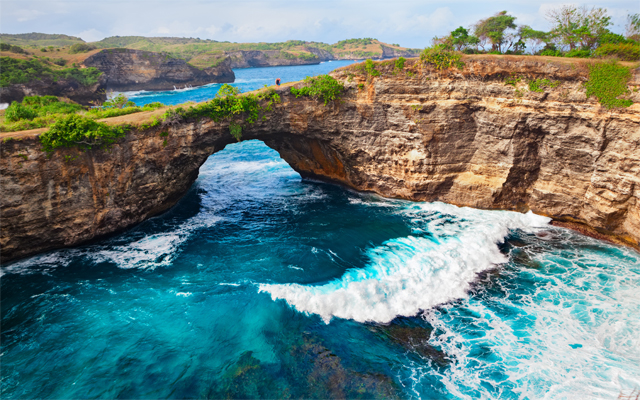
Indonesia is drawing up plans for a “travel bubble” with four Asia-Pacific countries – China, Japan, South Korea, and Australia – in a bid to restart the country’s tourism engine after the coronavirus lockdown.
The plan was revealed by Odo R M Manuhutu, deputy of tourism and creative economy at Coordinating Ministry of Maritime Affairs and Investment, during a web press conference on June 12. He also raised the possibility that the Indonesian government might gradually reopen its borders to other countries, after those four Asia-Pacific countries.

The fact that the bulk of foreign tourist arrivals to Indonesia comes from China, Japan, South Korea, and Australia is not the only reason behind the country’s plan to open the green lane with them.
“Now, Indonesia’s interest is to guarantee investment – there is a lot of investment from those countries and it has helped Indonesia’s economy,” he said.
Odo added that the pandemic would change the way people travel, and that Indonesia needed to learn and observe those changes, through “travel bubbles”, with the aforementioned countries as “the prototypes”.
The “travel bubbles” will allow both business and leisure travellers from the four countries to enter Indonesia, Odo said, adding that he expects corporate travel to resume before leisure travel.
“We will push (the opening of) direct flights from Seoul to Jakarta and Bali, or Osaka to Bali, (for example). We urge direct flights because people right now avoid long transits. (Virus) transmission can happen during the transits,” he said.
But he couldn’t yet reveal when the “travel bubbles” will be established, and which Indonesian cities will open to travellers from those four countries, as talks with related government agencies were still underway.
Cities in Indonesia had varying levels of readiness, and the government would have to assess the Covid-19 situation in individual cities, Odo said.
“(In deciding the cities to open to foreign travellers,) we do not only consider the economic aspect. We also take safety into account because we want people to feel safe and comfortable,” he added.
AB Sadewa, corporate secretary of Panorama Destination, welcomed the government’s plan to set up a “travel bubble” with Australia due to its geographical proximity to Indonesia. However, he questioned the decision to open the first green lane with Japan, South Korea, and China, instead of Malaysia and Singapore that were the country’s closest neighbours.
“The number of travellers from Malaysia and Singapore to Indonesia is bigger than that from Japan, South Korea, and China,” he said.
On the other hand, Anton Thedy, CEO of TX Travel, hailed the government’s choice of countries, noting that tourists from Japan, South Korea, and China are bigger spenders than those from South-east Asian countries.
He opined that the arrivals of high spenders from those countries would help revive Indonesia’s economy and people’s livelihoods.
For Anton, the Indonesian government’s move is akin to Singapore’s recently-launched “fast lane” with China. But he believes that Indonesia’s “travel bubble” will make bigger ripples on the tourism sector, as it differs from Singapore’s “fast lane” that grants only business people to travel.
Both Sadewa and Anton agreed that the first thing that the government should do right now was to prepare the readiness of destinations, including ensuring the enforcement of health protocols in Indonesian hotels, restaurants, destinations and other spots in a bid to prevent cross-border virus transmission after the opening of the travel corridors.
“In tourist destinations like Lembang, West Java, people still ignore physical distancing and do not wear masks properly,” Anton said, adding that he feared foreign tourists would contract the virus from locals.
Sadewa, however, is worried that foreign tourists will bring the virus to Indonesia, and hopes that the government will choose to set up “travel bubbles” with low-risk countries.



















